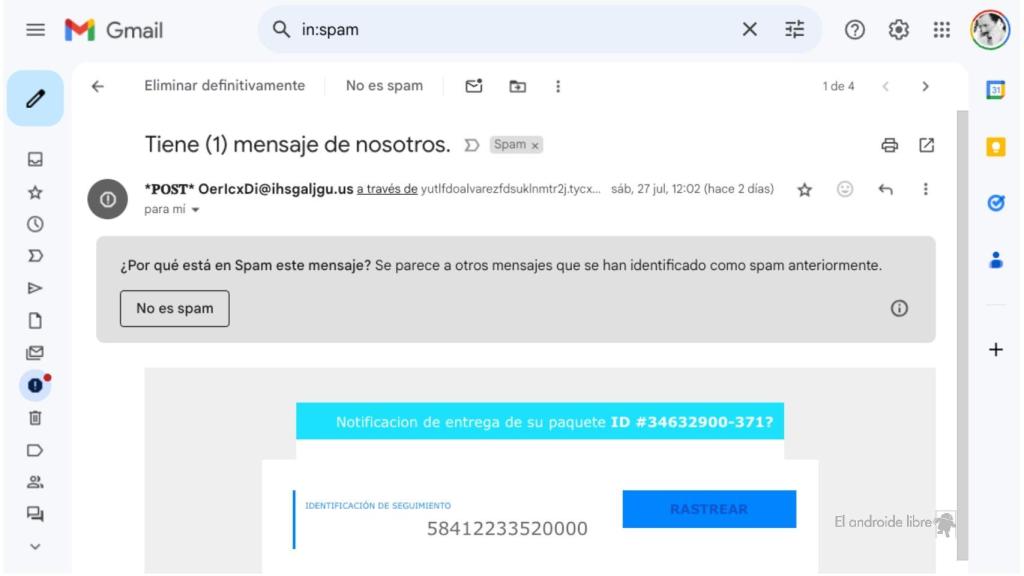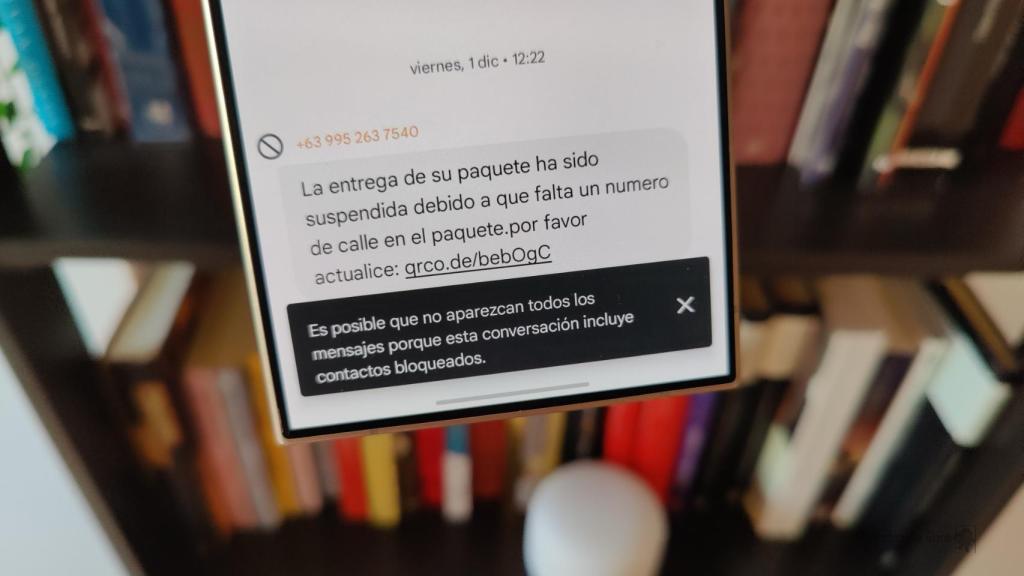In the last two decades personal communication has changed enormously. The popularization of messaging applications, the use of SMS in some countries (not in Spain, which have always been expensive and that is why WhatsApp triumphed as it did) and the normalization of the Internet connection in mobility in an unlimited manner has made many of the conversations that are had with friends, family or work colleagues are by means of computer tools. This has also meant that scam attempts have evolved and adapted.
We have already normalized that, on a day-to-day basis, fraud attempts are received from a variety of sources, because cybercrime is growing worldwide. It is normal. It can be done delocalized, it is much more complex to track and you don’t even have to be in the same country to commit the crime.
That’s why we must be very careful when we receive a message or a call that we are not expecting.. Scam attempts are very varied, but sometimes you can detect certain patterns that can make us escape an attempt to steal our data or our money.
Telephone calls
Robinson List. The first thing we need to do to minimize the chances of being scammed over the phone is to sign up for the Robinson List. What this list does is to tell companies that it is illegal to contact us for commercial purposes. Obviously, a scammer is not going to comply with the regulations willingly, but we will know that if someone calls us to sell us something, it could be a scam, because legal companies should not do it.
Double Calling. In spite of everything, if we receive a call, we must be aware of whether they present themselves as “our gas,” electricity or telephone company. Many times they try to make a user change company by calling first to tell him that they are going to increase his fees and then call from a competitor company to make a tempting offer. If an offer seems attractive to us, the best thing to do is to hang up and call the company to confirm that the offer is true and, if we want, to contract it.

Phone call
The Free Android
No sensitive data. In an unsolicited call you should never give personal or bank details. Neither should you give details such as the CUPS, which is the supply number of the electrical installation. Whenever this type of data is going to be given it is better that it is in a call that we have started ourselves.
Junk mail. E-mail scams have improved a lot in recent times. Gone are the days of a scammer trying to make us believe that we are the heirs of a Nigerian prince. It is very important to have your junk mail or SPAM folder properly configured. In the main services, such as Outlook or Gmail, this is the case, but it is also necessary to do it in corporate e-mails that use their own servers.
Spelling. Any commercial proposal, any email that arrives from an entity that looks official may be a scam. One of the quickest ways to tell is by spelling mistakes. Many times the opening exclamation and question marks are not used, other times the wording is strange because an automatic translator has been used, etc.
The links. Never click on a link in a suspicious email. Many times these links lead to pages that pretend to be those of our bank, or of our e-mail provider. Whenever we want to interact with these sites we must type them manually in the browser.

E-mail with scam attempt
The Free Android
Domains and URLs. It is also necessary to pay attention to the domain from which a message arrives to us. It is practically impossible to receive a scam email from a real address of a bank or other company. Normally, they use much longer addresses in which, somewhere, they have the name of the company. If in doubt it is better to search the internet for the contact form and call or write to the company ourselves. The same thing happens with the links in the emails. They lead to very strange web addresses (URLs) that show that they do not come from the official entities they claim to be.
SMS
In the case of SMS, the same things must be taken into account as in the case of e-mails. In other words, never open a link that comes in one of them, it is necessary to take into account the spelling and check if the number from which we receive the communication is the normal number of the entity when it writes to us. But the latter is easy to fake, so you have to be very alert.

SMS with a scam attempt
El Androide Libre
Spanish numbers. Another aspect to consider is the origin of the SMS received. If it starts with a number other than +34, which is the prefix of Spain, there is a greater chance that it is a scam. The same happens if it has a higher or lower number of digits than the Spanish numbers.
Planning. It is also normal to receive messages from courier companies, or Correos, informing us that we have a package in customs and that we have to pay an amount to pick it up. To begin with, it is necessary to take into account if we have really bought something since many times it is not like that. And in the case that it is, it is better to contact the seller before paying. Because the problem is not only the money given, but also bank details such as the credit card or the name of the cardholder.